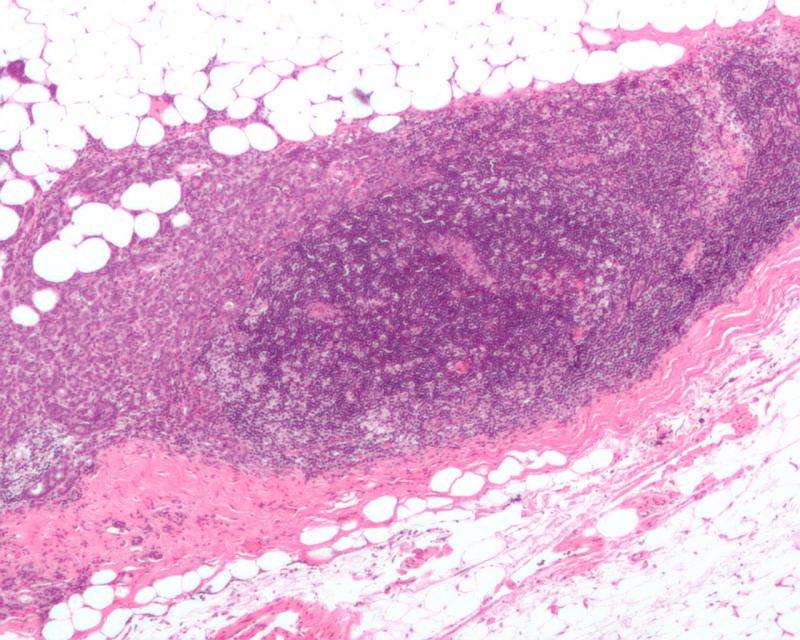Researchers identify potential therapeutic target in aggressive breast cancer cells

An especially aggressive breast cancer cell can respond to hormone therapy if they express a specific protein known as estrogen receptor beta (ERβ), according to new research published on the cover of Oncotarget. The findings also revealed additional molecules that the researchers suggest targeting to develop drugs for this breast cancer type.
Breast cancer cells contain several types of hormone receptors for estrogen and/or progesterone that contribute to the growth and function of breast cells. Triple negative breast cancer (TNBC), which occurs in 15 percent of diagnosed breast cancers, is an aggressive cancer type defined by the absence of specific receptor proteins that bind the hormones estrogen and progesterone that are present on normal breast cells. The absence of these receptors makes these cancers resistant to targeted hormone treatment, which is commonly used in other breast cancers.
Despite advances in treatment methods, patients with TNBC have a poor prognosis because the cancer is more likely to spread to other organs. In the study, researchers at the Mayo Clinic in Minnesota aimed to better understand and characterize the molecular signaling pathways in these cells in order to identify better treatments.
The researchers found that the growth of TNB cells that lacked estrogen receptor alpha (ER?) in the lab could be significantly slowed by treatment with estrogen or estrogen-like chemicals if the cells presented a second estrogen receptor, ERβ. They also tested this approach in a mouse model which had TNB cells grafted to it, and found that estrogen could prevent tumor growth and in some cases even cause tumor regression, if the cells expressed ERβ.
Importantly, further analysis found that the effects of estrogen on ERβ were in part due to proteins called cyclin-dependent kinases (CDKs) that control when and how cells divide.
"Our data suggests that the tumor-suppressive effects of ERβ in triple negative breast cancer are partly controlled by cell cycle regulating proteins suggesting that targeting these proteins may lead to potentially new and effective therapies for triple negative breast cancer," said Dr. Hawse
The researchers also note that other studies have observed that patients with TNBC who lack ERα but have ERβ have not only an increased survival rate but are also more likely to become cancer free, supporting the notion that drugs designed specifically to activate ERβ, such as estrogen, may provide therapeutic benefits in these patients.
These preliminary findings will have to be evaluated further in cellular and animal models before they can be considered for a clinical trial, a task that the research team is expected to take on in future studies.
More information: Jordan M. Reese et al, ERβ inhibits cyclin dependent kinases 1 and 7 in triple negative breast cancer, Oncotarget (2017). DOI: 10.18632/oncotarget.21787

















